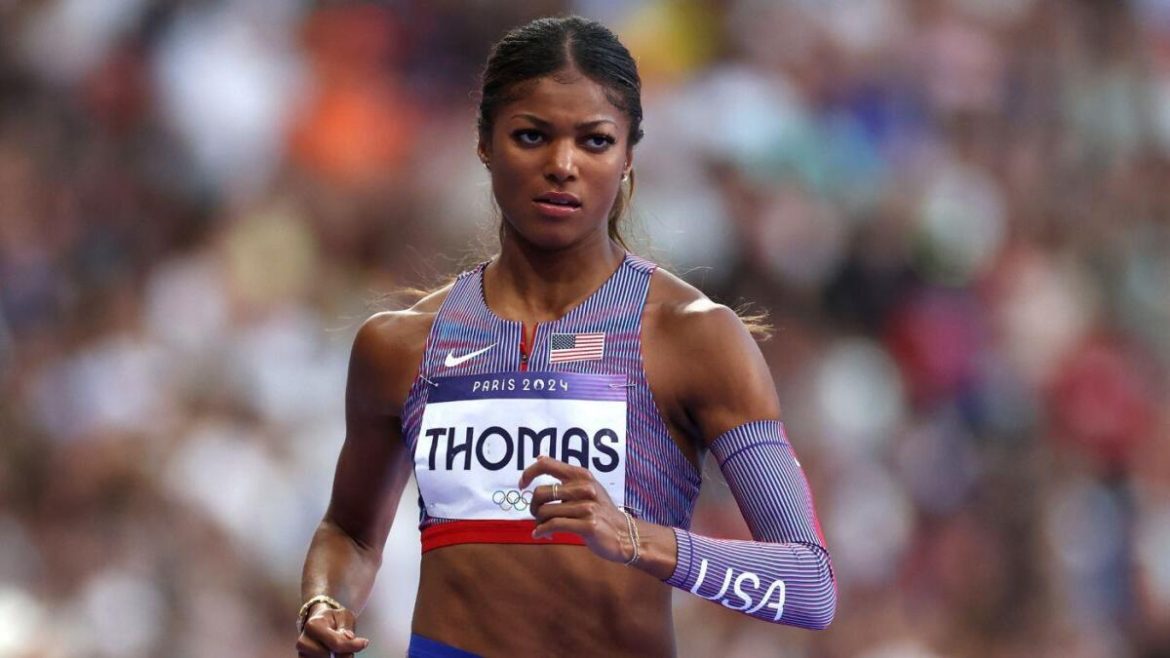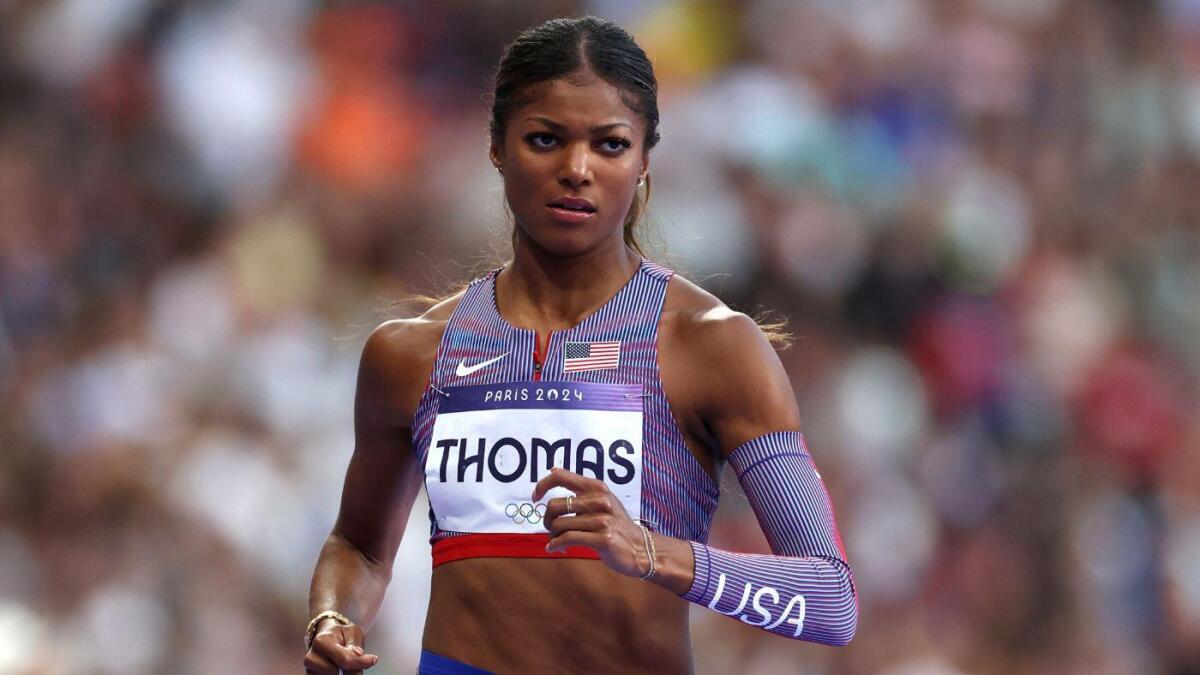Gabby Thomas, a distinguished American track and field athlete and three-time Olympic gold medalist, recently brought to light a distressing incident of harassment that occurred during the Grand Slam Track meet in Philadelphia. This episode, involving a sports bettor who verbally harassed and physically followed her around the track, not only highlights her personal ordeal but also raises pressing concerns about athlete safety in the evolving landscape of modern sports culture, particularly with the increasing prevalence of sports betting.
The Incident at the Grand Slam Track Meet
Gabby Thomas, renowned for her victories in the 200m sprint, as well as the 4x100m and 4x400m relay events at the 2024 Paris Olympics, faced unprovoked verbal abuse and stalking behavior perpetrated by a sports bettor during the Philadelphia meet. The individual in question openly shouted personal insults at Thomas and boasted about winning multi-leg bets placed on a sports betting platform. Videos and screenshots capturing the harassment circulated publicly, intensifying the gravity of the situation.
Thomas took to social media, particularly the platform X (formerly Twitter), to publicly denounce this harassment. She expressed her frustration and called out those who enabled the bettor’s behavior online, describing the actions as “gross.” This public disclosure has triggered an official investigation by Grand Slam Track organizers, who condemned the harassment and vowed to thoroughly scrutinize the incident. The attention from Thomas, combined with the swift response from officials, underscores a growing awareness of the vulnerabilities high-profile athletes face beyond their competitive performances.
Broader Context: Athlete Safety and Sports Betting
This incident does not stand alone. Throughout the year, Thomas had spoken out on similar predicaments, notably sharing experiences of being stalked by groups of men at multiple airports. These repeated episodes reveal an unsettling pattern of harassment that extends into athletes’ personal spaces, signaling a broader issue of athlete security in public and semi-public arenas.
Furthermore, the link between sports betting and athlete harassment emerges as a concerning trend. The bettor’s provocations during the Philadelphia meet—intended to disrupt or influence Thomas’ performance while boasting about successful bets—illustrate how gambling culture can spill over into toxic fan behavior. Female athletes in other sports, such as professional tennis, have voiced similar concerns about “unhealthy betting” environments that contribute to harassment and mental strain.
Sports betting’s rapid expansion brings complex challenges. While it can enhance fan engagement and the sport’s popularity, it simultaneously can foster obsessive or aggressive conduct toward players, skewing the spectator dynamic and threatening fair play. The Thomas incident highlights the need for rigorous measures to protect athletes physically and psychologically from the fallout of such betting-related misconduct.
Gabby Thomas: Athlete and Advocate
Beyond her athletic prowess, Gabby Thomas is recognized for her multifaceted achievements, including her academic success as a Harvard graduate and a holder of a master’s degree in public health. She has leveraged social media platforms to not only document her athletic journey but also to raise awareness about athlete welfare and confront online harassment.
Her willingness to publicly expose stalking and harassment incidents reflects a commitment to changing the narrative around athlete vulnerability. By refusing to remain silent, Thomas champions the cause of safety and respect for athletes, advocating for institutional accountability and stronger protective policies.
Institutional and Community Responses
Following the exposure of the harassment incident, the Grand Slam Track organization promptly initiated an investigation. This response signals an understanding that creating a secure environment for competitors is paramount. However, such investigations must be complemented by proactive policies, including:
– Enhanced security personnel at events, especially during high-profile meets.
– Clear codes of conduct regarding fan behavior and swift sanctions for violations.
– Coordination with online platforms to counteract harassment enabled or intensified via social media.
– Educational campaigns addressing the impacts of sports betting on athlete treatment.
Engaging fans, bettors, and the sports community in cultivating respectful conduct is essential to preserving the integrity of the sport and wellbeing of athletes.
Conclusion: A Moment to Reflect and Act
Gabby Thomas’ experience at the Grand Slam Track meet serves as a potent reminder that athletes, while celebrated for their physical feats, remain susceptible to troubling social dynamics magnified by the intersection of modern sports culture and gambling. Her courage in confronting harassment publicly invites a critical examination of how sporting events, governing bodies, and the digital world interconnect with athlete safety.
This incident propels ongoing conversations about safeguarding those who dedicate their lives to sport. It calls for concerted efforts to ensure that arenas and public spaces remain places where excellence can thrive undisturbed — not overshadowed by intimidation or harassment. Upholding dignity and security for athletes like Thomas is a vital stride toward a healthier, more respectful sports environment for all.





